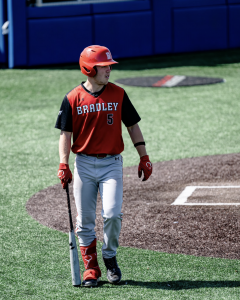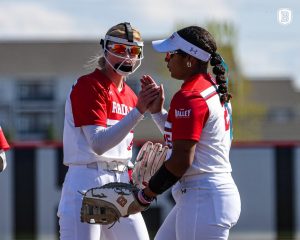Kids look up to athletes.
Kids watch physical specimens playing fun sports for large sums of money to the cheers of large, raucous audiences full of eager fans ready to cheer every move and victory. Then, the young ones go to their local park or own backyard and attempt to imitate Air Jordan’s tongue-wagging dunks, Frank Thomas’ batting stance or Tom Brady’s smooth drop back in the pocket. It is not difficult to paint a picture for reasons why children look up to and want to become professional athletes. The problem is, every so often athletes let their fans down.
“If I wasn’t a liar, a cheat, or a thief, then I believed that should be enough,” wrote Lance Armstrong in his book It’s Not About the Bike: My Journey Back to Life. Since writing his book, Armstrong has admitted to being both a liar and a cheat along with smearing the names of other cyclists who spoke out against him.
In January of 2013, Manti Te’o’s dead girlfriend was revealed to be a hoax by two writers for Deadspin and has become an infamous sports scandal not soon to be forgotten.
Mark McGwire and Sammy Sosa helped revitalize Major League Baseball after the lockout of 1994-95. Now McGwire has admitted to using steroids, and not a soul believes Sosa played a clean career.
No one is claiming that the youth’s interest in athletes needs to be curbed. Children’s adoration of athletes is most likely irreversible.
However, Charles Barkley appears wiser and wiser every time a new scandal in sports comes around. Barkley was adamant throughout his playing career that parents needed to take more initiative when it came to being role models for their children. In his Air Nike commercial, Barkley said, “I’m not a role model…Just because I dunk a basketball doesn’t mean I should raise your kids.” Despite the controversy, in the commercial’s simplest form Barkley is correct.
Parents cannot tell their children to look up to athletes while acting immorally or unethically.
Yet, should the professional athletes be blameless?
Absolutely not.
When an athlete is charged with sexual assault, a DUI or even murder, that athlete is usually under a national spotlight. Their fans see and read about it – the children included. The children do look up to these players and most people do not consider someone who cheated their way to a Hall of Fame candidacy as someone their children should look up to. Parents must remain vigilant in setting a good example for their children, and athletes must remember who their audience is. In addition, while Barkley is correct and an athlete does something to display how he or she is not a role model, it is up to the parents to talk to their children. The parents need to explain to their children what a DUI is, why it is bad and how to separate what the athlete does in the game from the bad things they do in real life.
Barkley and athletes like him are role models whether they like it or not.
They simply should not be.
David Israel is a senior sports communication major from Skokie. He is the Scout sports reporter.
Direct comments, questions and other responses to disrael@mail.bradley.edu.




